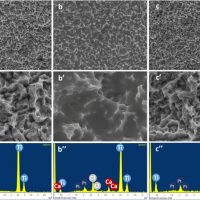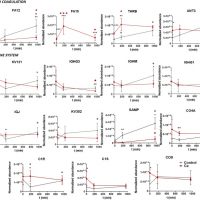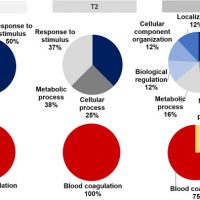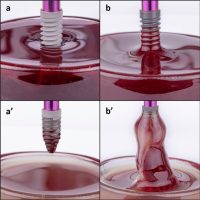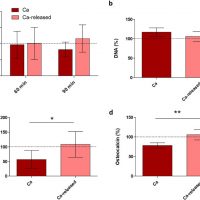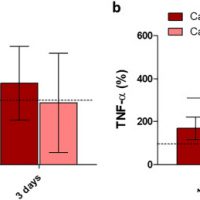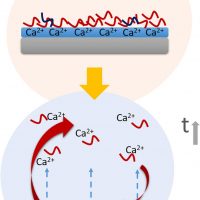- Auteur:
- Eduardo Anitua
- Ricardo Tejero
- Francisco Romero-Gavilán
- Andreia Cerqueira
- Iñaki García-Arnáez
- Cristina Martinez-Ramos
- Seda Ozturan
- Raul Izquierdo
- Mikel Azkargorta
- Félix Elortza
- Mariló Gurruchaga
- Isabel Goñi
- Julio Suay
Protein adsorption/desorption dynamics on Ca-enriched titanium surfaces: biological implications
Abstract
Calcium ions are used in the development of biomaterials for the promotion of coagulation, bone regeneration, and implant osseointegration. Upon implantation, the time-dependent release of calcium ions from titanium implant surfaces modifies the physicochemical characteristics at the implant-tissue interface and thus, the biological responses. The aim of this study is to examine how the dynamics of protein adsorption on these surfaces change over time. Titanium discs with and without Ca were incubated with human serum for 2 min, 180 min, and 960 min. The layer of proteins attached to the surface was characterised using nLC-MS/MS. The adsorption kinetics was different between materials, revealing an increased adsorption of proteins associated with coagulation and immune responses prior to Ca release. Implant-blood contact experiments confirmed the strong coagulatory effect for Ca surfaces. We employed primary human alveolar osteoblasts and THP-1 monocytes to study the osteogenic and inflammatory responses. In agreement with the proteomic results, Ca-enriched surfaces showed a significant initial inflammation that disappeared once the calcium was released. The distinct protein adsorption/desorption dynamics found in this work demonstrated to be useful to explain the differential biological responses between the titanium and Ca-ion modified implant surfaces.
Keywords: Bioinorganic chemistry; Blood clotting; Dental implants; Osseointegration; Proteomics.
© 2021. The Author(s).

 Español
Español
 English
English
 Italiano
Italiano
 Português
Português

